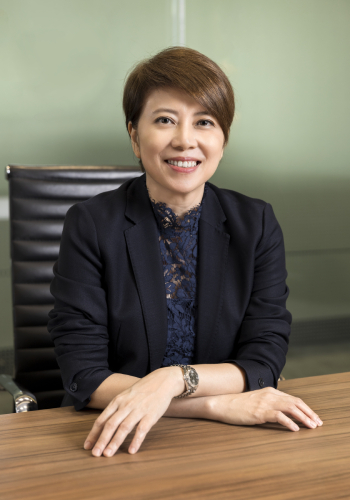A particular phrase, “operational resiliency”, was heard in numerous conversations between senior executives at Northern Trust in the course of 2020, and the concept it embodies is sure to remain a key focus there for some time to come.
“Covid-19 tested many organisations’ business models, technology, and operating frameworks, far beyond any form of simulation,” says Yen Leng Ong, the firm’s country executive for Southeast Asia, who sets the strategic direction for asset servicing, asset management and capital markets solutions for institutional clients. “The pandemic changed many aspects of our personal and professional environments, so we must continue to strengthen and adapt.”
In short, she notes, that means meeting the demand for innovation and technology - especially in the digital currency space - and thinking more about how to defend against cybersecurity threats, which are an ever-increasing threat in the financial services industry. It also means continuing to develop fintech and accelerating efforts to give investors access to newer areas like fractionalised bonds.
“My role requires me to be strategically innovative, as well as pragmatic and able to react to dynamic situations,” says Singapore-based Ong. “Fortunately, I have a genuine curiosity for new things and a thirst for knowledge. This has allowed me to truly understand the nature of technology and the details which are crucial to the functioning of our business.”
In another respect, as a female leader, she has found it is important to be assertive and not shy away from difficult conversations. That largely stems from a belief that nothing is impossible and that applied teamwork can overcome almost any obstacle.
“Also, my grandfather always instilled in me the desire to work hard. That is an invaluable character trait and especially imperative for a role in finance.”
It was no doubt much in evidence when Ong began a BSc in computer science at the University of Essex in England, specialising in artificial intelligence (AI). She already had a diploma in electronic engineering and subsequently took an MA in management at the same university after she had established herself first in a first job with a leading international accounting and consultancy firm. There, she worked with clients in diverse sectors including government, technology and financial services.
“Moving to the UK for my education made me very independent,” Ong says. “I had to learn to solve problems on my own and was encouraged to think ‘outside the box’. Overall, it was an eye-opening experience and really helped to propel my career further down the line because I understood how to go from theory to practice. Living in the UK also taught me the value of money. In Singapore, I had everything I needed from my family; when on my own I learnt to appreciate what I had and not take anything for granted.”
After eight years in consultancy and looking for a new challenge, Ong signed on as regional business leader for a global card payments company in Singapore before moving on to a bank. These contrasting experiences gave her insights into the workings of more consumer-focused types of business and paved the way to joining Northern Trust in 2009.
There, she arrived as head of product management and strategy for an Asia-Pacific network of 11 offices before assuming her current position in 2017. For part of that time, she doubled as chief administration officer and, at present, also has regulatory responsibilities to the Monetary Authority of Singapore.
“I remember the first six months was not easy,” she says. “I had to learn about the asset servicing industry from scratch, everything from investment operations to securities financing, what we sold to our institutional investors, and what the life of a trade looks like. Because this is a complex niche sector, you really have to do your homework and read a lot, but still nothing compares to hands-on experience.”
When advising jobseekers, Ong emphasises the need to be confident, inquisitive, and unafraid of hard work. It also makes sense to think two steps ahead and have a back-up plan.
“When selecting an employer, it is also important to consider not just the company and the role, but also the culture as it relates to diversity, equality and inclusion,” she says. “Wherever I worked, my managers gave me equal opportunities, and I always felt supported during my career journey regardless of gender.”



